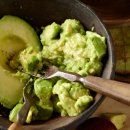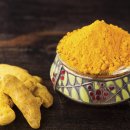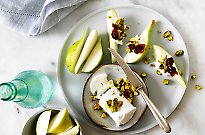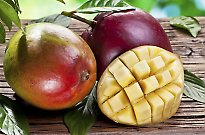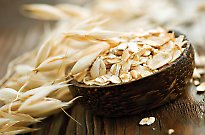
Cinnamon - a super spice
Cinnamon - a super spice

Ancient Eastern cultures have known of the riches of cinnamon for centuries. Its history dates back as far as 2,000 BC, where Egyptian pharaohs used it as a perfuming agent during the embalming process. The sweet, sultry spice was one of the most valuable currencies used by Arab traders, who eventually introduced it to Europe, where it quickly became revered for its culinary excellence. Now, as well as being a delicious addition to dishes both sweet and savoury, cinnamon is touted as a solution for blood sugar control, weight loss, mental alertness, cancer prevention, IBS and much more.
What is cinnamon?
Cinnamon comes from the inner bark of a tropical evergreen tree. The bark is removed and dried, then rolled to create cinnamon quills or ground to cinnamon powder. Cinnamon can be used in both sweet and savoury dishes alike – adding a deliciously warm and sweet flavour. The cinnamon tree also produces oil that can be used in food flavouring, as well as a disinfectant, insect repellant, aromatherapy oil and more.
There are hundreds of types of cinnamon but only four types or varieties are used for commercial purposes, including Ceylon, cassia, Saigon and korintje. You’re most likely to find cassia on the shelves of your local supermarket, but Ceylon holds the most highly prized health benefits due to it’s comparatively low levels of coumarin – a compound that can cause liver damage when ingested in large amounts.
With it’s mild but slightly sweeter aroma, Ceylon can add a sophisticated flavour to any dish.
History
Cassia cinnamon is produced in Indonesia, China and Vietnam, while Sri Lanka supplies 95 per cent of all Ceylon cinnamon available. Ceylon is more expensive and more difficult to find in Australia, where most spices labelled cinnamon are actually the cheaper cassia.
Health benefits of cinnamon
Cinnamon has long been recognised for its ability to stimulate the respiratory and circulatory systems as well as a digestion aid, but did you know it’s also a good source of manganese, fibre, iron and calcium? Other benefits include:
Weight control – Cinnamon is known to thin the blood, thereby improving overall circulation. Increased blood flow generally boosts your metabolism. Cinnamon also helps to maintain stable blood sugar levels, assisting with cravings and unnecessary snacking.
Irritable bowel syndrome (IBS) – As a digestive, cinnamon can reduce uncomfortable feelings associated with IBS such as bloating. It does this by killing bacteria and healing infections in the GI tract and enabling the gastric juices to work optimally.
Antioxidant – With a high oxygen radical absorbance capacity (ORAC) score of 267536 μmol TE/100g (USDA 2007), cinnamon is one of the top seven antioxidants in the world. The suggestion is that antioxidants reduce the formation of free radicals that cause cancer. Antioxidants are beneficial for your whole body, repairing damage throughout from your skin to organs.
Antibacterial and antifungal – Cinnamon is a known potent virus fighter. A recent Indian study claimed that cinnamon can turn HIV-infected people into HIV controllers (those who carry the virus but do not develop AIDS). Cinnamon’s powerful antifungal properties are the perfect natural alternative to killing the athlete’s foot fungus. Just soak your feet in water infused with cinnamon and see results from three days onwards.
PMS – One teaspoon of cinnamon powder provides six per cent of your daily dose of manganese, which makes it an excellent candidate to mitigate the effects of PMS. According to the University of Maryland, women who consumed more manganese in their diets had fewer mood swings and cramps compared to those who didn’t.
Gut health – Cinnamon is a powerful stomach antibacterial, which helps to remove bad bacteria from the gut. If suffering from digestive issues, include cinnamon in your diet along with a good probiotic or fermented food to repopulate your body with good bacteria.
Reduces irritability – Ancient folklore says the smell of cinnamon is the best cure for the winter blues. While there is no evidence to support its use for treating depression, a study at Wheeling Jesuit University found that the mere scent of cinnamon reduces irritability in drivers.
Sources and dosage
Studies have shown that just half a teaspoon of cinnamon per day can benefit overall wellbeing.
How to use it
With a little bit of creativity, there are lots of ways to include cinnamon in your diet. Reduce the temptation to add sugar by sprinkling on your breakfast cereal, on fruit and yoghurt for a nutritious snack, or enjoy half a teaspoon in your coffee or tea. It doesn’t matter how you consume the cinnamon, as long as you eat it on a regular basis Similarly, cinnamon can be used in savoury dishes in place of salt, and adds a delicious aroma.
NEXT: try Cinnamon oranges with slivered almonds or a vegan Chocolate, cinnamon and macadamia pudding
Author: Sally O'Neil

